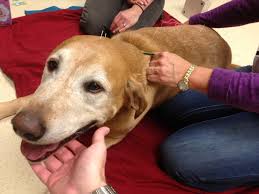VETERINARY MEDICINE
Introduction
Veterinary Science deals with diagnosing, treating and curing the different types of diseases in birds and animals. It involves taking care of animal health as well as scientific breeding of livestock.
Doctor of Veterinary Medicine (DVM) is a five years study program that broadly covers the study of animal physiology, treatment and prevention of diseases among animals. The basic principles of this program are quite similar to that of human medicine.
Nature of Work
Veterinarians are Doctors, like those working on human medicine, but in a different field. As a matter of fact, the veterinarian curriculum is much more diversified than human medicine because of the amount of different species and physiologies the veterinarians have to deal with.
- Care for the health of pets, livestock, and animals in zoos and race clubs or animals with the government's animal husbandry departments.
- vaccinate animals against diseases, medicate animals suffering from infections or illnesses, treat wounds and set fractures by performing surgery,
- Advise about animal feeding, behavior, and breeding.
- Some also work on how to protect humans against diseases caused by animals and conduct research on human and animal health care problems. For this, they also work with physicians and scientists.
- Large animal veterinarians often spend more time traveling to see their patients at the primary facilities which house them (zoos, farms, etc).
- They work outdoors in all kinds of weather and may have to treat animals or perform surgery, under unsanitary conditions.
- As opposed to a human doctor's office, which only has exam rooms, a veterinarian's office is more like a hospital with a full pharmacy.
- Also help human medical doctors by determining the effects of antibiotic medicines, drug therapies, or surgical techniques by testing them on animals. In fact, veterinarians have hade a great contribution in conquering malaria and yellow fever, invented an anticoagulant which is used to treat heart diseases and also solved the mystery of botulism.
So a veterinarian, especially a general practitioner, carries out many responsibilities as diagnostician, surgeon, pharmacist, dentist, radiologist, and as an orthopedic surgeon as well.
Veterinarians in private or clinical practice often work long hours in a noisy environment. Veterinarians risk being bitten, kicked, or scratched when working with animals that are scared or in pain.
Veterinarians working in nonclinical areas, such as public health and research, have working conditions similar to those of other professionals in those lines of work. These veterinarians enjoy clean, well-lit offices or laboratories and spend much of their time dealing with people rather than animals.
Some also work in basic research; broadening this domain of knowledge, and some in applied research; developing new ways to implement the knowledge gained by those working in basic research.
|
Education |
Admission Requirements |
|
|
|
Qualities Required |
Job Opportunities |
|
|
Views: 43445






